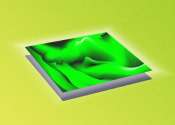Cable bacteria: Living electrical wires with record conductivity
A team of scientists from the University of Antwerp (Belgium), Delft University of Technology (Netherlands) and the University of Hasselt (Belgium) have reported on bacteria that power themselves using electricity and can ...









